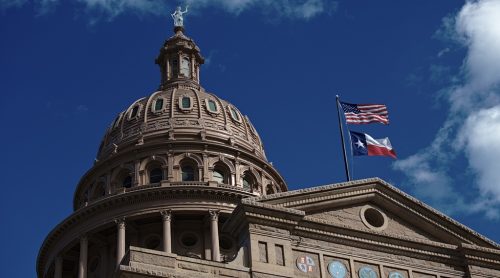 Today, U.S. District Judge Sharon Blackburn ruled to keep many of the key provisions in HB 56, Alabama’s restrictive immigration law recently challenged by the Department of Justice (DOJ) and civil and immigrant rights groups. While Judge Blackburn ruled to enjoin some provisions of HB 56, she found that the DOJ and civil and immigrant rights groups did not meet “the requirements for a preliminary injunction” in its claim that major provisions—such as the section requiring schools to determine the immigration status of students’ and their parents’—are preempted by federal law. Signed by Governor Robert Bentley in June, HB 56 was challenged by civil rights groups, religious leaders and the DOJ on the basis that the law interferes with the federal enforcement of immigration laws and places undue burdens on local schools and federal agencies.
Today, U.S. District Judge Sharon Blackburn ruled to keep many of the key provisions in HB 56, Alabama’s restrictive immigration law recently challenged by the Department of Justice (DOJ) and civil and immigrant rights groups. While Judge Blackburn ruled to enjoin some provisions of HB 56, she found that the DOJ and civil and immigrant rights groups did not meet “the requirements for a preliminary injunction” in its claim that major provisions—such as the section requiring schools to determine the immigration status of students’ and their parents’—are preempted by federal law. Signed by Governor Robert Bentley in June, HB 56 was challenged by civil rights groups, religious leaders and the DOJ on the basis that the law interferes with the federal enforcement of immigration laws and places undue burdens on local schools and federal agencies.
In today’s ruling, Judge Blackburn ruled to allow Alabama to ENFORCE the following sections:
- Section 10, which makes it a criminal misdemeanor for an unauthorized immigrant to fail to carry immigration documentation
- Section 12(a), which requires law enforcement officers to determine the immigration status of those stopped, detained, or arrested whom they reasonably suspect is in the country illegally
- Section 18, which requires law enforcement to transport those arrested for driving without a license to the nearest magistrate where they will be detained for prosecution or handed over to federal immigration authorities
- Section 27, which bars Alabama courts from enforcing a contract involving an unauthorized immigrant
- Section 28, which requires public schools to determine the immigration status of enrolling students
- Section 30, which makes it a felony for an unauthorized immigrant to enter into a business contract with the State of Alabama
The judge ruled to ENJOIN the following sections:
- Section 11(a), which makes it a misdemeanor for an unauthorized immigrant to apply for, solicit or perform work
- Section 13, which makes it unlawful for a person to conceal, harbor or transport an unauthorized immigrant or encourage an unauthorized immigrant to come to Alabama
- Section 16, which forbids an employer from claiming tax deductions from wages paid to unauthorized immigrants
- Section 17, which allows discrimination lawsuits against employers who dismiss U.S. citizen or legal immigrants while employing unauthorized workers
To date, federal judges have blocked key provisions of immigration laws in four (Arizona, Utah, Georgia and Indiana) of the six states that passed them. The judges agreed that many of the restrictive provisions contained in laws violate the Constitution’s due process clauses and interfere with the federal government’s authority over immigration matters.
In a statement following today’s ruling, Gov. Bentley said that he intends to work with Alabama Attorney General, Luther Strange, to appeal the sections of the law enjoined by Judge Blackburn.



